
Blankley, co-authors present to Interagency Alternative Dispute Resolution Working Group
15 Mar 2023
Professor Kristen Blankley, along with co-authors Professor Kathleen Claussen of Georgetown Law and mediator Judith Starr, presented to the federal Interagency Alternative Dispute Resolution Working Group on Wednesday, March 15.
The presentation featured their work for the Administrative Conference of the United States (ACUS) on Alternative Dispute Resolution (ADR) in Agency Administrative Programs. This research group produced a report for ACUS in 2021 regarding ADR opportunities for public-facing agency programs. The report is the culmination of an 18-month study of agency practices in the area of ADR, as well as recommendations for agencies looking to create or improve ADR programs.
Professor Blankley is the Henry M. Grether, Jr., Professor of Law. She teaches and researches in the areas of alternative dispute resolution, legal ethics, and at the intersection of ethics and dispute resolution.
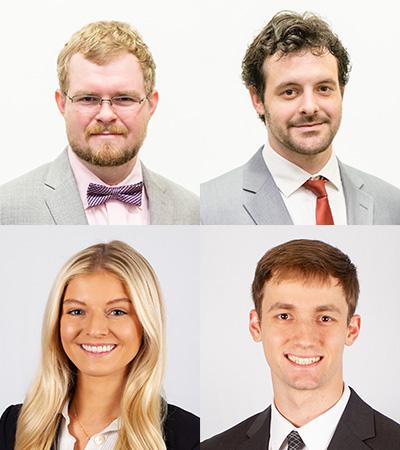
2L Team places second at Regional Patent Application Drafting Competition
15 Mar 2023
Teams from Nebraska Law, composed of 2L and 3L students, competed in the Rocky Mountain Regional of the United States Patent and Trademark Office’s (USPTO) National Patent Application Drafting Competition on Sunday, March 4. The 2L team of Tom Simonson, Luke Lacy, Jessie Sadlon, and Luke Zoller (pictured to the right), advanced to finals and finished in 2nd place out of 9 teams.
The competition challenges law students to develop patent prosecution skills by applying legal principles to a hypothetical invention scenario. Teams were required to analyze an invention statement, perform a patentability search, draft a set of patent claims and a patent specification, and then present and defend the application to a set of judges made up of patent experts.
The 3L team was made up of DeLaney Brink, Brady Stuhmer, and Jinah Shin. The teams are coached by attorney Matt Poulsen, ’10.
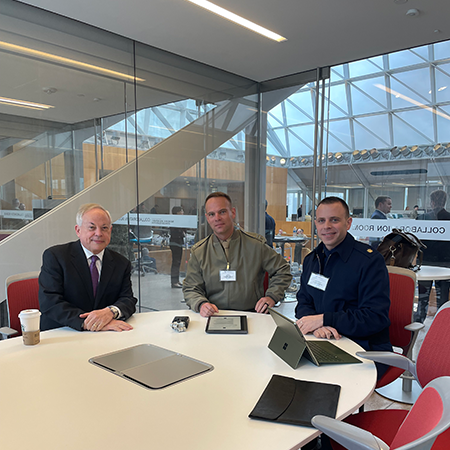
Beard Featured on "Quill and Sword" Podcast
10 Mar 2023
Nebraska Space, Cyber, and Telecommunications Law Director Jack Beard was featured on the “Quill and Sword” podcast. While attending the USSPACECOM Legal Conference, Beard spoke with Capt. Joel Hood and LCDR Tyler Stutin, Center for Law and Military Operations, on the current state of space law. In the episode, Beard talks about the misconceptions of space law, the difference between cyber and space law, and the concept of due regard. They also discuss the Woomera Manual.
To listen, visit: https://podcasts.apple.com/us/podcast/the-quill-sword-ep-3-usspacecom-legal-conference-part-1/id1654759342?i=1000603026068.
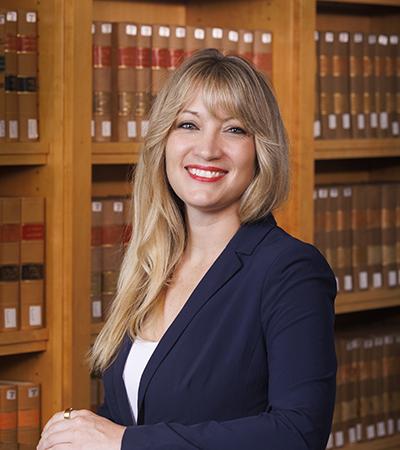
Jefferis' article accepted by Fordham Law Review
08 Mar 2023
Professor Danielle Jefferis' article,"Carceral Deference: Courts and Their Pro-Prison Propensities," has been accepted for publication by Fordham Law Review. In the article, Jefferis discusses judicial deference to prison officials and contextualizes the origins of carceral deference.
Read the abstract below:
Judicial deference to non-judicial state actors, as a general matter, is ubiquitous. But “carceral deference”—judicial deference to prison officials on issues concerning the legality of prison conditions—has received far less attention in legal literature, and the focus has been almost entirely on its jurisprudential legitimacy. This Article adds to the literature by contextualizing carceral deference historically, politically, and culturally. Drawing on primary and secondary historical sources, as well as trial and other court documents, this Article is an important step to bringing the origins of carceral deference out of the shadows, revealing a story of institutional wrestling for control and unbridled dominance that has not, until now, been fully told.
That full telling is more important now than ever, as society grapples with the scope, scale, and racist impacts of American punishment. Carceral deference plays an enormous role in the constitutional ordering of state power, as well as civil law’s regulation of punishment, a force that is often neglected within the criminal law paradigm. Moreover, the Supreme Court has demonstrated a recent skepticism of judicial deference in other areas of the law, suggesting an era in which traditional notions of deference are up for reconsideration. Understanding how the foremost judicial norm in the prison law space developed gives us a foundation from which to better examine and critique the distribution of power among prisons, courts, and incarcerated people and the propriety of deference to prison officials; further informs our understanding of the systemic and structural flaws of the criminal punishment system; and adds to a growing body of literature analyzing the role of expertise in constitutional analyses across dimensions, from qualified immunity to the administrative state.
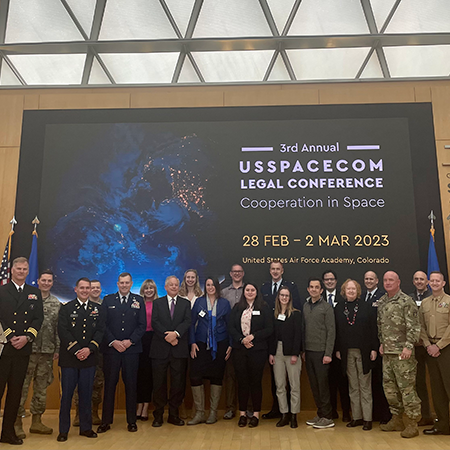
Nebraska Students and Alumni Attend USSPACECOM Legal Conference
08 Mar 2023
Nebraska Law students, program directors, and alumni were well-represented at the annual USSPACECOM Legal Conference, co-sponsored by the Law, Technology, and Warfare Research Cell at the U.S. Air Force Academy and United States Space Command (USSPACECOM). This year, the conference was focused on Cooperation in Space, featuring panels on commercial and military partnerships, space operations and national security in the space domain, space traffic managment, and operational law. Three students, Amelia Ruffolo, Indie Talken, and Emma Schlenker received a travel award to attend the conference. Many other Nebraska JD and LLM Alumni were also in attendance at the US Air Force Academy in Colorado Springs.
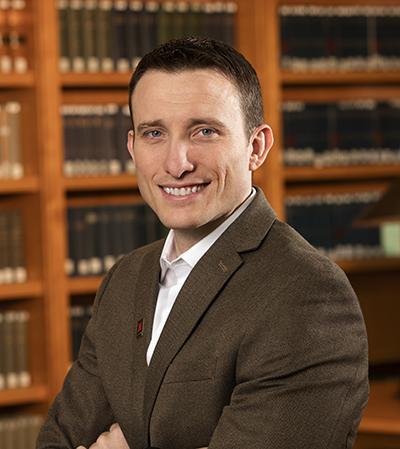
Prof. Sullivan and volunteers named Free Legal Answers 2022 Pro Bono Leaders
27 Feb 2023
Professor Ryan Sullivan and volunteers from Nebraska Law were recently named American Bar Association Free Legal Answers 2022 Pro Bono Leaders. This annual recognition is presented to individual attorneys, law firms, corporate law departments, and other organizations that have provided extraordinary pro bono services through this pro bono legal advice portal. Professor Sullivan and other faculty volunteers answered a total of 113 civil legal questions last year.
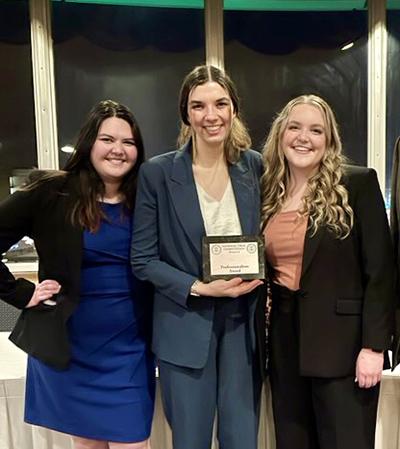
National Trial Team advances to national competition
24 Feb 2023
Two Nebraska Law National Trial Teams recently competed in the regional competition in Sioux Falls, S.D. There were 19 teams representing 10 law schools.
Attorney members of the two teams:
- Grace Deist, Lauren Olsen, and Julia Pomerenke.
- Laura Bolton, Bree Hurt, and Olivia Thiel.
Witness members of the team:
- Adam Barrett, Kenessa Copeland, Braden Dvorak, and Claire Shada.
Pomerenke received the Best Opening Statement award and the team of Bolton, Hurt, and Thiel won the Most Professional Team award. Both Nebraska teams advanced to the final round of the competition. The team of Bolton, Hurt, and Thiel won and will be competing in the national competition in San Antonio in late March.
The team is coached by Professor Steven Schmidt and Adjunct Professor Carolyn Bosn as assistant coach.
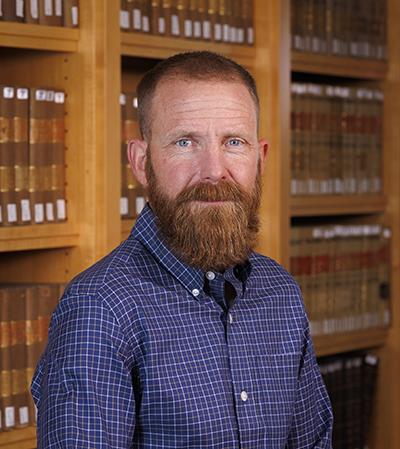
Schutz's article published in Nebraska Law Review Bulletin
24 Feb 2023
Professor Anthony Schutz's article, "The Uncertain Fate of LB 753 Under Article VII, Section 11 of the Nebraska Constitution's No-Aid Provision" was recently published in the Nebraska Law Review Bulletin.
In the article, Schutz examines Legislative Bill 753 (L.B. 753), which would provide a non-refundable, 5-year carry-over tax credit for donations to qualifying scholarship-providing organizations. The bill is currently being considered by the Nebraska Legislature. Schutz addresses whether such a program violates article VII, section 11 of the Nebraska Constitution.
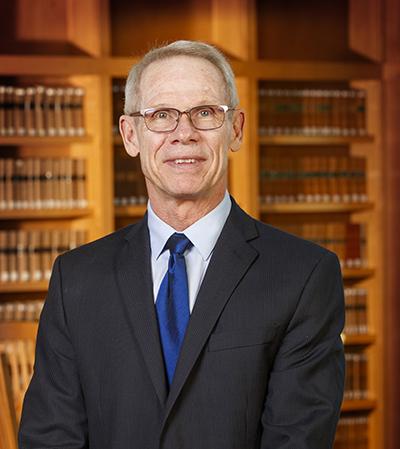
Centner's article published by University of Cincinnati Law Review
24 Feb 2023
Professor Terence Center's article, "Invasions of Dicamba Particles: Holding States Accountable for Taking Offsite Property Owners’ Right to Exclude,” was recently published by the University of Cincinnati Law Review. In the article, Centner examines the registration of dicamba herbicides by state governments.
Read the summary below:
In 2017, special formulations of dicamba herbicides were marketed for post-emergent use on genetically engineered soybeans and cotton. The use of these formulations was accompanied by considerable herbicide drift and volatilization that harmed millions of acres of nearby crops. For each growing season during 2018-2021, unacceptable offsite injuries were reported in the major soybean and cotton-producing states. Given the reported injuries, state agencies issuing new registrations for dicamba products in 2018 and 2020 knew offsite spray drift and volatilization would carry dicamba particles onto nearby properties. Despite their knowledge, states issued permits for the use of dicamba products that granted applicators easements over nearby properties. These easements involved entries of dicamba particles that damaged vegetation. The approval of dicamba registrations by state governments may be viewed as appropriations of neighbors’ right to exclude. The registrations grant dicamba applicators easements that allow dicamba particles to enter non-target properties and cause property damage. These intrusions suggest that the state-approved registrations are appropriating property interests. Depositions of dicamba particles onto offsite properties damaging plants effect per se physical takings. States should compensate injured property owners for losses from dicamba spray applications.
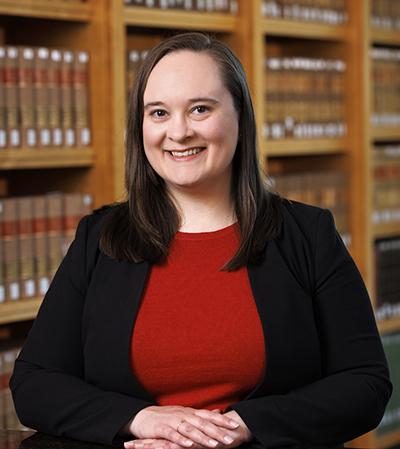
Fidler publishes chapter in Cyberspace & Instability
24 Feb 2023
Professor Mailyn Fidler published a chapter in a new book, Cyberspace & Instability. The book investigates the contested notion of "stability" in cyberspace.
Professor Fidler's chapter, "Infrastructure, Law, and Cyberstability: An African Case Study" looks at the idea from an African perspective, as well as the interesting connections between stability in infrastructure and stability in the law. The book is available open-access through Edinburgh University Press. https://edinburghuniversitypress.com/book-cyberspace-and-instability.html.
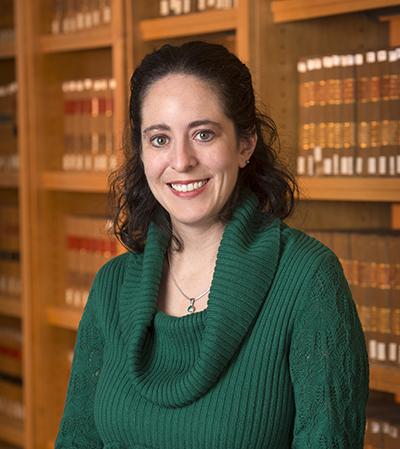
Blankley's article accepted by University of Miami Law Review
24 Feb 2023
Professor Kristen Blankley's article, "A Muddy Mess - the Supreme Court's Jurisprudence on Jurisdiction for Arbitration Matters" has been accepted for publication by the University of Miami Law Review.
The article discusses recent trends in federal court jurisdiction to hear arbitration matters and shows how a pair of Supreme Court cases have created an unduly complex system for parties to enforce rights under arbitration agreements. Blankley suggests a legislative change to simplify all of these matters for the courts and parties alike.
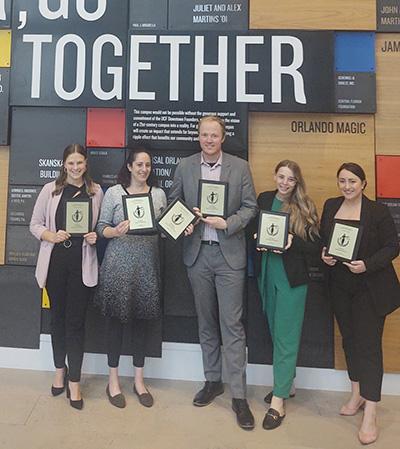
Mediation Team takes first at invitational tournament
23 Feb 2023
The University of Nebraska College of Law Mediation Competition Team traveled to the University of Central Florida on February 9 to take place in an invitational tournament for law students, international law students, and undergraduates.
Nebraska Law dominated the tournament with the following team awards:
1st Place - Mediator Team (Steve Lydick, Kelly Shanahan, Veronica Parish)
2nd Place - Attorney/Client Team (Steve Lydick, Kelly Shanahan, Veronica Parish)
The students also received numerous individual awards:
1st Place - Attorney/Client Individual Award - Steve Lydick & Veronica Parish
3rd Place - Attorney/Client Individual Award - Ashly Helfrich (as an alternate on a team put together hours before the competition!)
4th Place - Individual Mediator - Veronica Parish
5th Place - Individual Mediator - Kelly Shanahan
The team is coached by Professor Kristen Blankley.
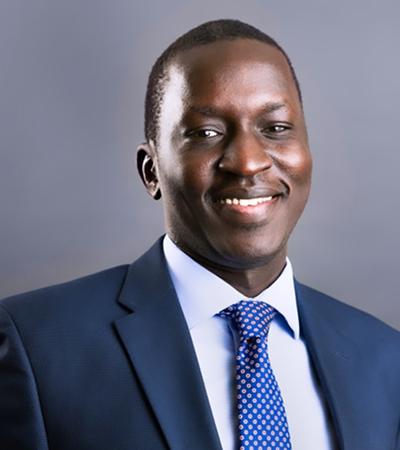
Ramdiet, '15, reselected for The National Black Lawyers' Top 40 Under 40
09 Feb 2023
Gatluak Ramdiet, '15, Associate at Lewis Brisbois Bisgaard & Smith LLP in New York, has been reselected for The National Black Lawyers' Top 40 Under 40 list.
Ramdiet is a member of the Medical Malpractice, Healthcare, Life Sciences, General Liability, Construction, and Toxic Tort & Environmental Litigation Practices. He represents individual healthcare providers in complex, high-exposure claims in the area of medical malpractice. He is a global education advocate and speaks to students, teachers, school administrators, and policymakers about the transformative power of education. Ramdiet was previously selected by the National Black Lawyers as Top 40 Under 40 in 2022. For more information on his work, see his bio at https://lewisbrisbois.com/attorneys/ramdiet-gatluak.
This honor is given to only the top 40 under 40 Black lawyers in each state or region with reputations for providing excellent legal representation in their respective practice areas. Membership in The National Black Lawyers is by invitation only and is based on current member referrals and independent research. The National Black Lawyers is a professional organization that celebrates legal excellence and promotes attorneys as subject matter experts, facilitates the exchange of timely information to enable members to maintain their status as leaders, and represents a strong national network of top Black attorneys.
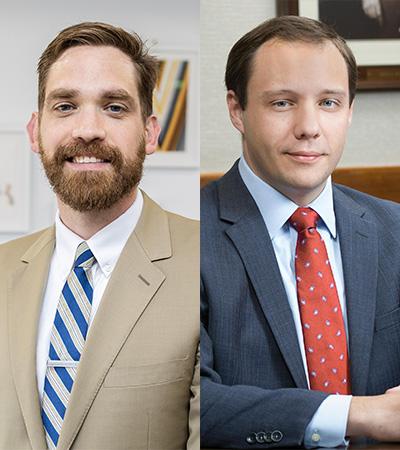
Clark, '15, and Zimmer, '16 promoted to partner at Cline Williams Wright Johnson & Oldfather, L.L.P.
09 Feb 2023
Nathan D. Clark, '15, and John F. Zimmer, '16, have been promoted to partner at Cline Williams Wright Johnson & Oldfather, L.L.P. Established in 1857, Cline Williams is a full-service law firm with 64 attorneys representing and assisting individual and institutional clients.
According to the Cline Williams website, Clark’s practice focuses on general civil litigation matters with an emphasis on intellectual property; First Amendment litigation and speech-related torts, such as defamation and invasion of privacy; commercial litigation; and appeals. His practice also includes personal injury, appeals to the Tax Review and Equalization Committee, legal malpractice defense, construction disputes, public records requests and the Open Meetings Act, securities, and products liability.
Zimmer represents banks, lenders, and businesses in the areas of bankruptcy, creditors' rights, commercial loan transactions, and business litigation. His civil litigation practice also includes an emphasis on real property disputes, state and local government, election law, and appellate practice. Zimmer is a member of the Order of the Coif, Order of the Barristers, and is active in many civic and community organizations. He is a director of the NEBRASKAland Foundation and a proud member of Lincoln Downtown Rotary Club 14.
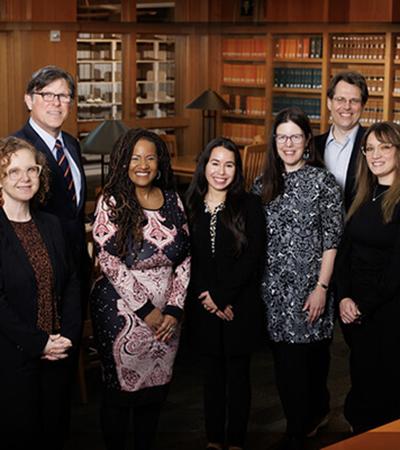
Law faculty, historians earn $1M grant for history & civil rights program
03 Feb 2023
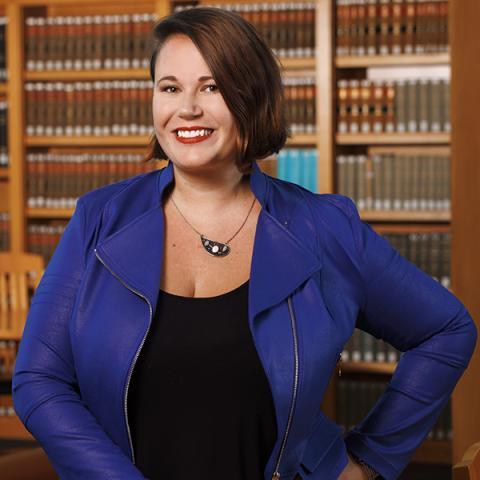
Magilton and Nebraska Deterrence Lab Run Experiment with Regional FBI
31 Jan 2023
Elsbeth Magilton, Director of Externships and Executive Director of the SCTL Program, took part in an experiment with the Nebraska Deterrence Lab and regional FBI agents and analysts. Working to develop and test tools that can help inform decision-making analysis, the Nebraska Deterrence lab brings together faculty and students from both the University of Nebraska at Omaha (UNO) and the University of Nebraska-Lincoln. The experiment tested the use of a multi-actor deterrence analysis methodology (known as MADAM) as applied to potential threats to the Nebraska and Iowa agricultural economy. Potential threats could range from actions by terrorist groups to cyber threats, climate change, and more.
The faculty and students worked with the FBI to obtain feedback on how MADAM could help to classify unfriendly actors and potential threats to recognize where vulnerabilities may exist and be exploited. Working together to prevent and deter future threats is a multidisciplinary endeavor requiring connections to be made within the fields of international affairs, national security, and foreign policy.
To read more about the event see: https://www.unomaha.edu/college-of-arts-and-sciences/news/2023/01/nebraska-deterrence-lab-hosts-experiment-with-regional-fbi-agents.php.
For more information on the Multi-Actor Deterrence Analysis Methodology: https://nsri.nebraska.edu/irad/projects/multi-actor-deterrence-analysis-methodology-and-laboratory.
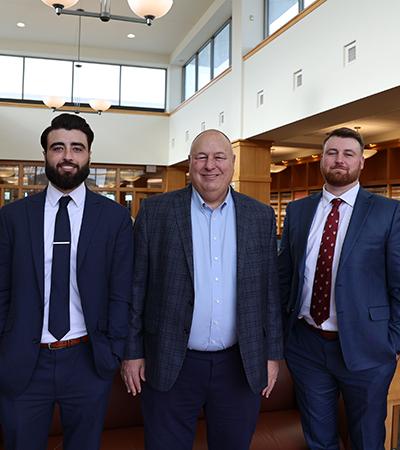
Keegan and Kyle Hansen, '22, continue family tradition
11 Jan 2023
Brothers Keegan and Kyle Hansen are the latest in a line of College of Law graduates, following in the footsteps of their father and grandfather.
Keegan and Kyle both graduated with their J.D. and Masters in Business Administration this past December. Their law school experience was filled with many unusual obstacles, as they continually shifted between on-campus and virtual learning. They agreed that their favorite experiences over the past few years included spending time in the building and making connections with their fellow classmates.
“It’s been a long road,” Kyle said. “But it’s fun to come back and think about all of the memories.”
Both Keegan and Kyle were initially drawn to the College of Law as a result of their family connection. When they visited on Admitted Student Day, they recognized the opportunity to share the Nebraska Law experience with their father, Jeff Hansen, '90 and grandfather, Laverne Hansen, '53.
Jeff is the Executive Vice President and General Counsel at Troon Golf. He said that although many aspects of law school look much different than when he started in 1987, he could relate to many of Keegan and Kyle’s anecdotes.
“They worried about the same things I worried about, and we went through a lot of the same stuff,” Jeff said.
By the time Jeff had started law school, Laverne had passed away. He said it was difficult at times to go without the guidance and advice he was able to give to his sons.
“I came in not knowing anybody, but I met new people, enjoyed the professors I had, and it was a really good experience,” Jeff said.
Jeff recalled hearing stories about Laverne from former Professor John Gradwohl, '53, from time to time.
“To have the connection I had with my dad going here, and then having these two follow in that same vein is just so special,” Jeff said.
Jeff said he’s proud to share his Nebraska Law connection with his sons and wished his father and mother could be there to see the graduation ceremony.
“It’s just really important and rewarding for me to see it.” Jeff said.
Following graduation, Kyle will be working at Cozen O’Connor Law Firm in their commercial litigation department in Dallas, Texas. Keegan will continue working at the firm Jennings, Strouss and Salmon, PLC, in Phoenix, Arizona.
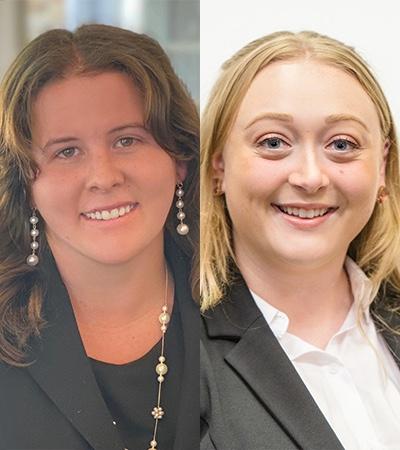
Mentorship Spotlight: Coleman, ’15, and Cavanaugh, ’24
10 Jan 2023
Ciara Coleman, '15, and Murphy Cavanaugh, '24, are a mentor and mentee pair in the Nebraska Law Mentor Program. The bond they share has helped Cavanaugh maximize her experience at Nebraska Law and prepare for her future career.
Since their pairing in Cavanaugh’s first year, the two have developed a strong, supportive mentoring relationship. They discuss everything from trials in the professional and academic realm to personal successes.
Coleman is often the first person Cavanaugh goes to when she needs advice or someone to talk things through with. When she was recently elected to the Nebraska Law Review Executive Board, Coleman was the first person she texted. She also called Coleman right away when her first semester grades came out.
“It’s so great because, first of all, she always celebrates my accomplishments with me,” Cavanaugh said. “But then she immediately asks what I’m going to do to celebrate.”
While Coleman has been a great help to Cavanaugh in navigating academic tasks such as cover letter and resume writing, on-campus interviews and exam preparation, she has also advised Cavanaugh on how to keep a healthy perspective and set boundaries.
"Those boundaries are critical, and a lot of students don't make them because you're wanting to get validation that you're doing well, but you also need to have that space to just be yourself," Coleman said.
Taking from her own experience at Nebraska Law, Coleman hoped to encourage Cavanaugh to carve out sufficient breaks from school and make meaningful connections. Not only would these practices enrich Cavanaugh’s experience in law school, Coleman said, but they would also help her be more effective in her future career.
“You're so used to comparing yourself to the rest of your classmates that to hear someone from the professional sphere who has also been exactly where I have been is so helpful,” Cavanaugh said.
The pair have also bonded over their shared experience of being out-of-state students. Coleman said she enjoys helping students navigate the potential culture shock of moving to Nebraska, something Cavanaugh experienced after having lived in Chicago.
"That's part of why I was immediately drawn to the mentor program," Cavanaugh said. "I didn't really know what the whole first year looked like, so having Ciara was immensely helpful."
Although Coleman acts as the mentor in the partnership, she said she’s learned a great deal from Cavanaugh.
“Seeing Murphy's drive to help the people around her in law school and how she approaches those situations was something I took away from her in our discussions,” Coleman said. “It really helped me learn how I can help other people in a more constructive way.”
Coleman is currently based in Lowell, Arkansas, but both her and Cavanaugh continue to communicate often. Both Coleman and Cavanaugh said they see no end in sight to their mentorship. Coleman said it’s especially important to continue the relationship through the first five years after law school, where they will encounter unique challenges.
“I wish I had had a mentor during that time, and particularly a female mentor,” Coleman said. “Having another female attorney to be able to help you navigate some of the ins and outs of firm life and how to best position yourself is absolutely critical.”
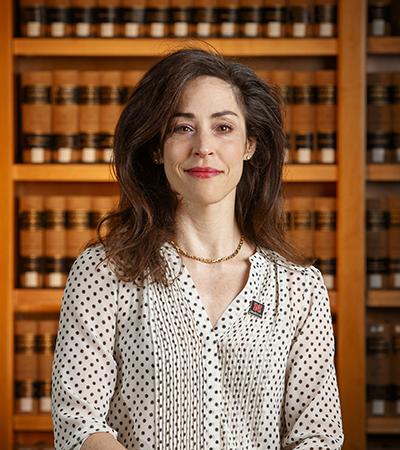
Zeide's article accepted by UMKC Law Review
09 Jan 2023
Assistant Professor Elana Zeide's article, "The Silicon Ceiling: How Artificial Intelligence Constructs an Invisible Barrier to Opportunity" has been accepted for publication by The University of Missouri–Kansas City (UMKC) Law Review. In the article, Zeide examines artificial intelligence, algorithms, automation and platform intermediation in education and employment.
Read the abstract below:
Algorithmic assessments increasingly shape individuals’ success in education and employment. Schools, recruiters, and companies now rely on automated platforms and analytics services to sort through an overwhelming number of options. Similar technologies help students and workers find opportunities to pursue. The “opportunity brokers” who provide these tools not only vet applicants, but also personalize advertisements, curate user-facing recommendations, and identify potential candidates to recruit or promote.
Because algorithms rely on data reflecting historical bias and inequality, artificial intelligence can retrench existing patterns of inequity. Automated systems compound this disadvantage as a few dominant companies draw on the same data and apply similar criteria. Further, the scale and pressures of the platform economy encourage both organizations and opportunity seekers to prioritize options with the highest probability of success. This leads to less diverse outcomes across industries and over time, constructing an imperceptible, but systemic, barrier to opportunity that I call the Silicon Ceiling.
Like the glass ceiling, the Silicon Ceiling undermines traditional regulatory regimes focused on discrete decisions and ex post remediation/fair scores and procedural guarantees. Algorithmic intermediation occurs out of view as targeted advertising, personalized recommendations, and passive recruiting shape the candidate pool well before formal decision making. As a result, the automated opportunity system precludes, rather than denies, access to opportunity. Most people will not know the details of the decisions, the entities making them, or that they have even been evaluated. It is not just that the “black box” of algorithmic opacity obscures inflection points; the barrier itself is invisible. These paradigmatic shifts call for new conceptualizations of harm and structural reforms to shatter the Silicon Ceiling.
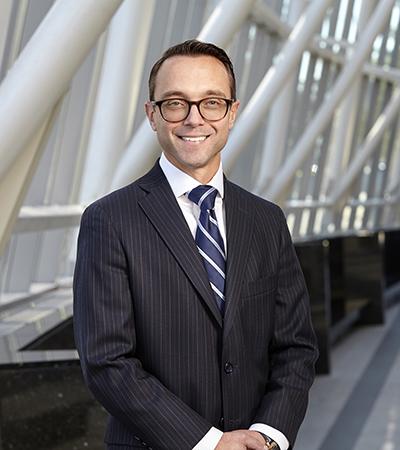
Grob, '07, selected as president at McGrath North
04 Jan 2023
McGrath North has selected Jonathan L. Grob, '07, to serve as the new president of the firm. Roger W. Wells, who has served as the firm’s leader since 2010, will transition to the role of chairman and continue his full-time business law practice for key firm clients.
"This selection is part of our ongoing transformation to transition firm leadership to our next generation of outstanding lawyers," Wells said. "We have also added new members to our Board, new practice group leaders and new chairs of key firm committees all as part of this carefully planned process. This succession strategy has also intentionally advanced our genuine commitment to diversity, apparent in additions to our Board, practice group leadership and committees."
Grob has served on the Board of Directors as executive vice president of the firm, as leader of the firm’s top-rated Tax, Trusts and Estate practice group and on various firm committees and project teams. In this new role, he will continue his full-time practice and commitment to the clients he supports and serves. Grob is highly recognized by key national professional rating services for his excellence in all aspects of the tax, trusts and estate planning fields, is a fellow in the American College of Trust & Estate Counsel, a former adjunct professor at Creighton University School of Law and a frequent lecturer on tax, estate planning and other topics.
"I am humbled, and at the same time, very excited to assume leadership of our firm, joined by our strong team of fellow leaders spread across all of our practice areas,” Grob said. "At McGrath North, we focus first and always on supporting our clients’ success, serving them with excellence, creativity, integrity and respect. And to do this, our firm management is firmly committed to continue building a talented, experienced and diverse team of professionals and to support them so they succeed both professionally and personally."